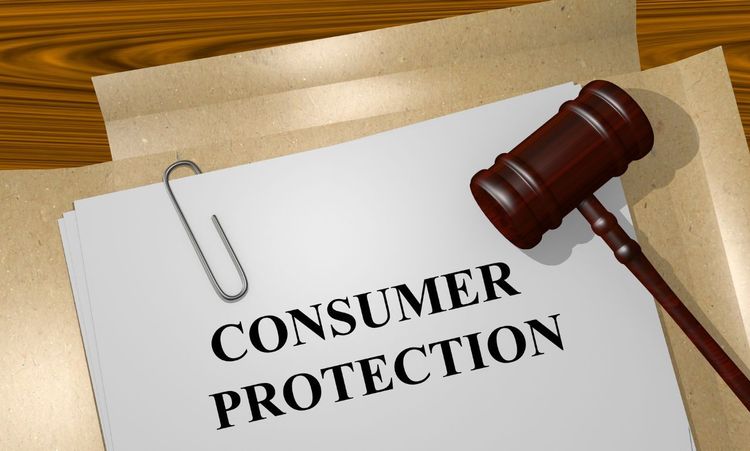What Are Consumer Rights To Delete Personal Information?
Your personal information is everywhere online. Companies collect, store, and often sell it without your knowledge. But here's the thing – you have more power than you think. Privacy laws across the United States are finally catching up with the digital age. These laws give you real rights to control your data, especially the right to delete it completely. Think about it: shouldn't you have the final say over information that belongs to you? This article will walk you through everything you need to know about your deletion rights. We'll cover the major privacy laws, how actually to request deletion, and what businesses must do when you ask them to remove your data. By the end, you'll know exactly how to manage and control your digital footprint.
Key Data Privacy Laws in the U.S.
California Consumer Privacy Act (CCPA)
California started the privacy revolution in America. The CCPA became law in 2020, and it changed everything for consumers and businesses alike. Under CCPA regulations, you can request that businesses delete your personal information. This isn't just a suggestion – it's a legal obligation for qualifying businesses. Companies must respond to your deletion request within 45 business days; however, they may extend this timeframe by an additional 45 days if necessary. Here's what makes the CCPA powerful: it applies to businesses that collect personal information from California residents, regardless of the business's location. If a company generates over $25 million annually, buys or sells personal information of 50,000 or more consumers, or derives 50% or more of its revenue from selling personal information, it must comply.
California Privacy Rights Act (CPRA)
The CPRA took effect in 2023, building on the CCPA's foundation. This law significantly expanded consumer privacy rights and established the California Privacy Protection Agency to enforce violations. One significant change involves the handling of sensitive personal information. The CPRA requires businesses to get your informed consent before collecting data like your social security number, ethnic origin, or details about your sex life. Without this consent, businesses face civil penalties that can reach millions of dollars. The CPRA also introduced the concept of "cross-context behavioral advertising." Companies can no longer use your data for targeted advertising across different websites and services without giving you clear opt-out options.
Virginia Consumer Data Protection Act (VCDPA)
Virginia followed California's lead with its comprehensive privacy laws. The VCDPA places a strong emphasis on consumer requests and how businesses must address them. Under Virginia's law, you have the right to request the deletion of your personal information. Businesses must provide an accessible mechanism for deletion, typically through a privacy inquiry form or a toll-free phone number. The law requires companies to respond within reasonable efforts and timeframes. What's interesting about Virginia's approach is its emphasis on consumer trust. The law recognizes that privacy rights aren't just legal requirements – they're fundamental to maintaining healthy business relationships with customers.
Colorado Privacy Act (CPA)
Colorado's privacy law takes a slightly different approach. The CPA emphasizes transparency in privacy practices and gives consumers strong rights over their data. Colorado requires businesses to honor verifiable deletion requests unless they have a legitimate reason to keep the data. These reasons include completing a business transaction, complying with legal obligations, or protecting against security incidents. The state also requires businesses to implement reasonable security procedures when handling requests for deletion. This prevents unauthorized people from deleting someone else's data and protects against potential security breaches.
Connecticut Personal Data Privacy and Online Monitoring Act
Connecticut's law rounds out the major state privacy regulations. This act focuses particularly on online activities and how businesses track consumer behavior across the internet. Connecticut requires businesses to provide clear privacy notices explaining how consumers can request deletion. The law also mandates that companies make their deletion process as simple as possible – without requiring users to jump through hoops or undergo complex verification procedures.
The Right to Delete Personal Information
Definition and Scope of the Right to Delete
These laws establish a legal framework that businesses must follow to request the removal of their data. Personal information under these laws is broader than you might think. It includes obvious details, such as your email address and phone number, as well as your IP address, online activities, and even inferences that companies make about your preferences or characteristics. However, there are exceptions. Businesses can retain your information for limited purposes, such as completing transactions, complying with legal obligations, or exercising their right to free speech. They can't just refuse your request because it's inconvenient.
Requests for Deletion
Making a deletion request should be straightforward. Most businesses now provide online forms, email addresses, or phone numbers specifically for requests related to privacy rights. When you submit a verifiable consumer request, companies typically need to verify your identity first. This prevents someone else from deleting your account or information without permission. The verification process should be reasonable – businesses should avoid making it so complicated that it discourages legitimate requests. Once verified, businesses must delete your personal information from their systems, including backup systems and archived data. They also need to instruct their service providers and third parties to delete your information if it was shared with them.
Opt-Out Options for Data Sale and Sharing
Beyond deletion, you have the right to control how your information is shared and used. Businesses must provide precise opt-out mechanisms for data sales and sharing arrangements. Many companies now include "Do Not Sell My Personal Information" links on their websites. These aren't just suggestions – they're legal requirements under privacy laws, such as the CCPA. Some states also recognize user-enabled global privacy controls. These browser settings can automatically communicate your privacy preferences to websites, making it easier to protect your data across the internet.
Impact on Businesses
Compliance Requirements and Deletion Policies
Businesses face significant compliance challenges under these new privacy laws. They must develop comprehensive deletion policies that cover the entire data lifecycle, from initial data collection to permanent removal. Companies need to map out where personal information lives in their systems. This includes customer databases, marketing platforms, backup systems, and any third-party services they use. Without this mapping, it's impossible to honor deletion requests fully. The financial penalties for non-compliance are substantial. California can impose fines up to $7,500 per violation, while other states have similar enforcement mechanisms. For large companies processing millions of consumer records, these penalties can quickly add up.
Staff Training and Awareness Programs
Privacy compliance isn't just a matter for the legal department. Customer service representatives, IT staff, and marketing teams all need training on how to handle consumer privacy rights requests. Employees must understand the difference between legitimate deletion requests and potential fraud attempts. They need clear procedures for verifying consumer identity and escalating complex requests to appropriate teams. Regular training updates are essential because privacy laws continue evolving. What was compliant last year might not meet today's requirements, primarily as enforcement agencies issue new guidance and regulations.
Informing and Coordinating with Third Parties
Most businesses don't operate in isolation. They work with advertising companies, data brokers, cloud storage providers, and other service providers who may have access to consumer data. When a consumer requests deletion, businesses must coordinate with these third parties to ensure the complete removal of data. This requires contractual obligations and ongoing monitoring to verify compliance. The challenge becomes even more complex with data that's been sold or shared for advertising purposes. Companies need systems to track where consumer data has been sent and mechanisms to recall it when deletion requests are received.
Conclusion
Consumer rights to delete personal information represent a fundamental shift in how we think about data ownership. These aren't just theoretical rights – they're practical tools you can use today to control your digital footprint. The key is understanding your rights and knowing how to exercise them effectively. Whether you're dealing with a major tech company or a small local business, privacy laws give you real power to demand deletion of your personal information. As more states enact comprehensive privacy laws, these rights will continue to grow stronger. The trend is clear: consumers are reclaiming control over their data, and businesses must adapt or face significant legal consequences.



